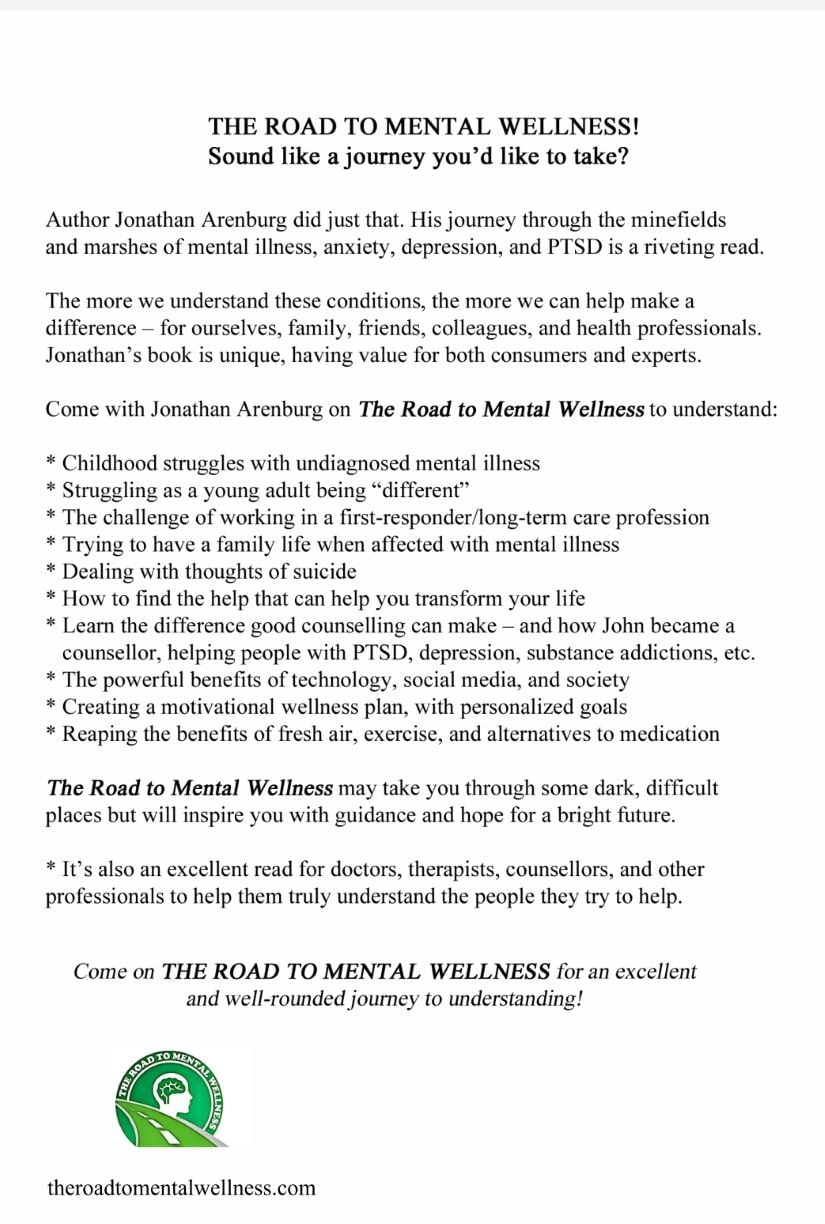Trauma is a very debilitating mental illness. Fortunately, there are treatments available. Like Trauma-informed care – what is it and how can it help?
Follow us
“I want to get past this, the nightmares, the irritability, always being frightened; constantly on guard for the next, what if scenario. It’s hell on earth and I don’t know what to do to make it stop!”
Sound like you? Firstly, I want you to know that there are going to be moments, days at a time even, when you feel done. Personally, I try and see this as side effects of PTSD. Furthermore, I work hard in those moments to understand that what I am experiencing is temporary. Like a rainstorm in the night, it will pass, and the sun will usher in a new day.
” You heal by doing”
I assure you my friends, what you are experiencing is a natural aspect to trauma.
With that said, we owe it to ourselves and our loved ones to work on finding what works best. Our healing depends on what we choose to do. In other words, sitting idle will keep us where we so desperately want to escape from.
Need help? Go to Our Mental Health Resources Centre
However, seeking out anything and everything to help propel us down the road to mental wellness, will open opportunity to thrive.
One such option is Trauma-informed care, but just what is it and how can it help>
Trauma-informed care is an approach to providing services and supports to individuals who have experienced trauma. It recognizes the impact of trauma on an individual’s physical, emotional, and mental well-being. Additionally, it seeks to create a safe and empowering environment for healing and recovery.

Jonathan speaking at the
Jonathan Speaking at the Stop Depression Summit
On February 23, 2023
His talk was on the ways in which you can take back your life when you have trauma and major depressive disorder
Now, you can watch Jonathan Speak at the Stop Depression Summit – FREE!
I was honored to be part of such a wonderfully resource rich summit with some of the foremost experts in the field.
The key principles of trauma-informed care include understanding and recognizing the signs of trauma, creating a safe and supportive environment, and using trauma-specific interventions. This approach also involves building trust and respect with individuals, providing choice and control, and helping individuals to develop resilience and coping skills.
In practice, this may involve training staff and providers in trauma-informed care, developing policies and procedures that support individuals who have experienced trauma, and using trauma-specific interventions such as cognitive-behavioral therapy or eye movement desensitization and reprocessing (EMDR).
It’s important to note that trauma-informed care should be integrated across the entire organization and not just within a specific program or service.
Trauma-specific interventions
Trauma-specific interventions are therapies and techniques that are specifically designed to help individuals who have experienced trauma. Some examples include:
- Cognitive-behavioral therapy (CBT): a form of talk therapy that helps individuals identify and change negative patterns of thinking and behavior.
- Eye Movement Desensitization and Reprocessing (EMDR): a therapy that involves recalling a traumatic event while engaging in a specific type of eye movement, which is thought to help process and integrate the traumatic memory.
- Prolonged Exposure (PE): a therapy that involves helping individuals confront and process traumatic memories in a safe and controlled environment.
- Trauma-Focused Cognitive Behavioral Therapy (TF-CBT): a form of CBT specifically designed for children and adolescents who have experienced trauma.
- Somatic Experiencing (SE): a therapy that focuses on helping individuals regulate their physiological responses to traumatic memories, in order to decrease symptoms of trauma.
- Trauma-Informed Yoga: Yoga classes that have been adapted to be safe and accessible for individuals who have experienced trauma.
- Narrative therapy: A method that involves helping individuals reframe their experiences and develop a more empowering narrative.
- Mindfulness-Based Stress Reduction (MBSR): a form of meditation that helps individuals develop awareness of their thoughts, feelings, and bodily sensations in order to manage stress.
Note: not all interventions are suitable for all individuals and it’s important to work with a qualified professional to find the best fit for the individual needs.
Principles of trauma-informed care.
- Safety: creating a physical and emotional environment that is safe for individuals and staff.
- Trustworthiness and transparency: building trust and transparency in all relationships and interactions.
- Peer support: incorporating peer support and leadership in the delivery of services.
- Collaboration and mutuality: fostering collaboration and mutuality in relationships with individuals and other systems.
- Empowerment, voice, and choice: empowering individuals with the ability to make decisions and voice their needs.
- Cultural, historical, and gender issues: recognizing and responding to the cultural, historical, and gender-related experiences of trauma.
- Strengths-based: focusing on an individual’s strengths and abilities, rather than deficits or disorders.
- Non-blaming: avoiding blame and instead focusing on understanding the complex causes and effects of trauma.
- Responsiveness: being responsive to the unique needs and experiences of individuals.
- Recovery-oriented: promoting resilience and recovery for individuals, families, and communities. It’s important to note that these principles are not a fixed set and different organizations may have different variations on the principles.
Need more options? Read Five ways to maximize your mental health.
Remember,
never give up on yourself. Yes, the road to mental wellness is hard but as you’ve just learned, there are many options out there. Trauma-informed care encompasses many options whilst creating a safe space to which you can start to heal.
Here at theroadtomentalwellness.com, we have many posts that provide our readers with information and inspiration. From personal stories of mental wellness journeys to articles like you just read, there’s something for everyone. If you’ve found this article helpful, please like and share it with others.
Thank you!

Want to get the complete Audiobook version Free! Go to our Homepage and use the Scriber form to receive our newsletter. Boom the book is yours.
Follow us











Please leave a comment and tell us what you liked about what you read.